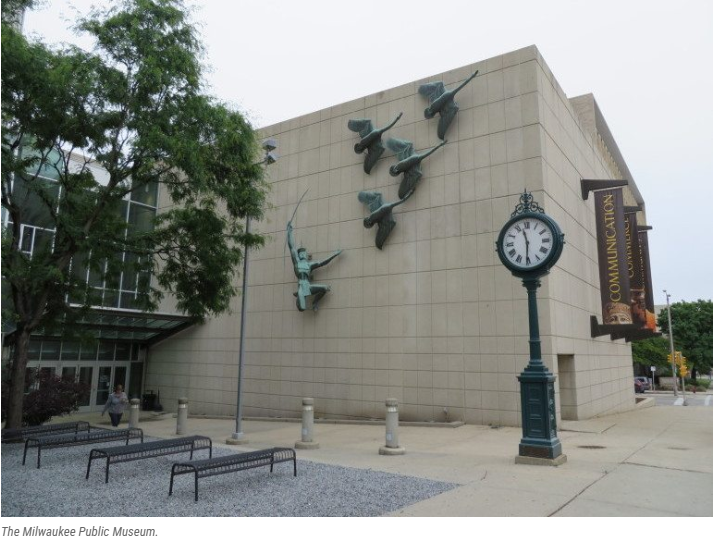"Who Gets to Decide What’s Best for the Milwaukee Public Museum?"
- SaveMPM
- Aug 28, 2025
- 3 min read

by: C Houston contributing by SJ, DR
"The most basic question is not what is best, but who shall decide what is best." – Thomas Sowell
The Milwaukee Public Museum has been a trusted steward of history for over 140 years, preserving and sharing the diverse cultures and natural wonders of our world. Its mission is to “inspire curiosity, excite minds, and increase desire to preserve and protect our world's natural and cultural diversity through exhibitions, educational programs, collections, and research.” However, recent actions by Milwaukee Public Museum, Inc., raise concerns about how this mission—and the collection owned by the citizens—is being handled.
Wisconsin Statute 19.31 asserts that “all persons are entitled to the greatest possible information regarding the affairs of government and the official acts” of public officials and employees. Transparency is not merely encouraged but deemed “an essential function of a representative government.” Yet, several instances reflect a troubling lack of transparency and accountability regarding the museum’s future and its handling of public assets. These include:
Violations of open meetings and records rules.
Failure to fulfill fiscal reporting obligations.
Deviations from county and state bond terms.
Lack of disclosure to the county board as required by contract.
Neglect of responsibilities for internal maintenance of facilities, collections, and exhibits.
Inadequate reporting on the deaccessioning of publicly owned artifacts.
Specific concerns arise from the museum’s recent PowerPoint presentation, which references the deaccessioning of items in its collection. Slide 25 includes quotes that appear to reinterpret the original International Council of Museums (ICOM) deaccessioning guidelines. While ICOM emphasizes preservation and careful management of collections, the museum’s presentation shifts focus toward "evolving the collection" to meet modern needs. The term "evolving" does not appear in the original guidelines, suggesting a departure from the preservation-centered mandate.
Public statements by Dr. Ellen Censky, the museum's leader, add to these concerns. She has described certain exhibits as outdated or problematic, such as claiming, “The fact that they thought they could represent a whole people with the same two mannequins is not good.” While inclusivity is vital, the approach appears driven by personal ideology rather than the public trust. Dr. Censky’s remarks, including criticisms of the museum’s past as “white” and “Eurocentric,” and her assertion that “nostalgia won’t carry us forward,” suggest a vision that risks erasing history rather than preserving it. This vision must align with the museum’s mission and responsibilities to its community.
The public is not opposed to a new museum. However, those entrusted with this world-renowned collection must demonstrate transparency, honor their obligations, and remain accountable to the citizens. As Sowell reminds us, “The most basic question is not what is best, but who shall decide what is best.” The museum’s transformation must reflect the voices of the cultures it celebrates and the community it serves, ensuring historical preservation is not sacrificed for ideological or unilateral decisions.
The Streets of Old Milwaukee, the Buffalo Hunt, and all the items that are so beloved by the community represent more than exhibits—they are cherished pieces of shared history. You have already been made aware of the community's objections to your plans to exclude The Streets of Old Milwaukee, yet you are not responding to these explicit objections. This lack of response violates state statute and undermines public trust. We will be raising awareness about these issues to ensure accountability.
Additionally, my concern regarding the inclusion of deaccessioning as a feature in your PowerPoint presentation suggests that this process may be used to implement your vision for the new museum, potentially without the awareness or approval of the community and the board. Such actions would be in direct violation of Wisconsin statutes and the ICOM guidelines, which explicitly prohibit using deaccessioning as a means to unilaterally reshape a collection for ideological or personal agendas. These decisions must reflect public input and comply with the legal and ethical standards entrusted to you as stewards of this public institution.



Comments